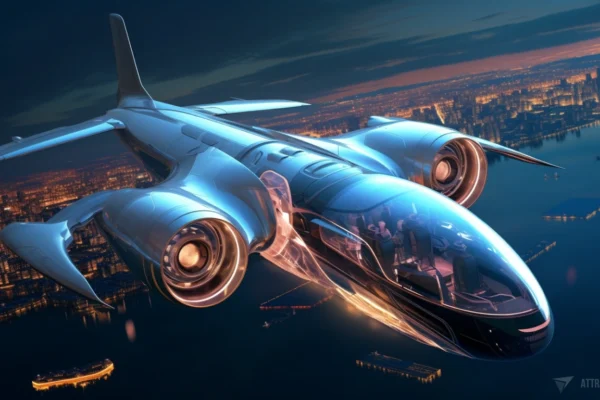Blogs
Impact of AI in Aviation
Transforming the Aviation Sector: The Impact of Artificial Intelligence

In recent years, the aviation industry has witnessed a remarkable transformation propelled by the integration of artificial intelligence (AI). From enhancing safety measures to optimizing operational efficiency and redefining the passenger experience, AI is revolutionizing every facet of aviation. This blog delves into the profound impact of AI on the aviation sector and explores how it is reshaping the future of flight.
Enhancing Safety Measures:
Safety has always been paramount in aviation, and AI is playing a pivotal role in bolstering safety measures. AI algorithms analyze vast amounts of data, including historical records, sensor readings, and performance metrics, to predict potential equipment failures before they occur. This proactive approach enables airlines to schedule maintenance tasks precisely when needed, reducing downtime and preventing unexpected breakdowns. Additionally, AI-powered condition monitoring systems continuously assess aircraft components in real-time, identifying anomalies or deviations from normal operating parameters. By detecting potential issues early, airlines can intervene timely, preventing the escalation of problems and ensuring the safety of passengers and crew.
Optimizing Operational Efficiency:
Efficiency is essential for the sustainable growth of the aviation industry, and AI is optimizing operational processes to drive efficiency gains. One significant application of AI is in flight route optimization, where algorithms consider various factors such as weather conditions, air traffic congestion, and fuel consumption to chart the most efficient course for each flight. By dynamically adjusting flight paths, airlines can minimize delays, reduce fuel consumption, and lower operational costs while maintaining safety standards. Moreover, AI-enabled automation is streamlining various aspects of airline operations, from ticket booking and baggage handling to in-flight services. By automating repetitive tasks and processes, airlines can improve resource allocation and enhance overall efficiency, leading to a more seamless and cost-effective operation.
Redefining the Passenger Experience:
Beyond safety and efficiency improvements, AI is redefining the passenger experience, making air travel more seamless, personalized, and enjoyable. AI-powered chatbots and virtual assistants provide instant assistance and personalized recommendations to passengers throughout their journey, enhancing customer service and satisfaction. Additionally, AI algorithms analyze passenger data to anticipate preferences and behavior, allowing airlines to tailor services and offers to individual travelers. From personalized flight recommendations to customized in-flight entertainment options, AI is transforming every touchpoint of the passenger experience, creating memorable and meaningful interactions that foster customer loyalty and retention.
Seizing Opportunities and Overcoming Challenges:
While the potential of AI in aviation is immense, its adoption comes with challenges such as data privacy concerns, regulatory compliance, and the need for specialized skills. However, industry stakeholders are actively addressing these challenges through collaboration, innovation, and the development of robust regulatory frameworks. By embracing AI and overcoming these challenges, airlines can unlock new opportunities for growth, innovation, and competitiveness in the rapidly evolving aviation landscape.
Conclusion:
In conclusion, artificial intelligence is revolutionizing the aviation industry, transforming safety, efficiency, and the passenger experience. By harnessing the power of AI, airlines can optimize operations, enhance safety measures, and deliver personalized experiences that exceed customer expectations. As AI technology continues to evolve, the future of flight promises to be safer, smarter, and more sustainable, ushering in a new era of aviation innovation and excellence. Embracing AI represents not just a technological advancement but a fundamental shift in how we approach aviation, shaping a future where flying is safer, smarter, and more enjoyable for everyone involved.
